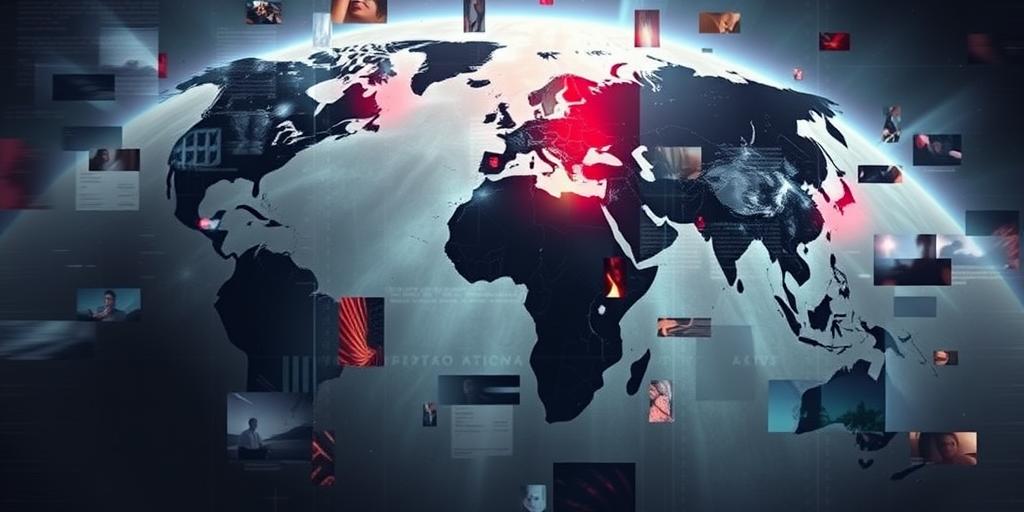The Erosion of Truth: How Misinformation Threatens Global Stability
In an era defined by instant information and interconnectedness, a darker undercurrent threatens to destabilize the world order: misinformation. The deliberate spread of false or misleading information is no longer a fringe phenomenon; it’s a sophisticated weapon capable of undermining trust, inciting conflict, and manipulating public opinion on a global scale.
The Multifaceted Threat of Misinformation
Misinformation manifests in various forms, each with its own unique impact:
- Disinformation: Deliberately fabricated or manipulated information intended to deceive.
- Malinformation: Information based on reality but used to inflict harm, often by exposing private information or distorting facts.
- Misleading Narratives: Spin or biased reporting that presents a skewed version of events.
These forms of misinformation can impact many facets of society:
- Erosion of Trust in Institutions: When falsehoods gain traction, public trust in governments, media outlets, and scientific institutions erodes. This distrust can lead to social fragmentation and political instability.
- Incitement of Violence and Conflict: Misinformation can be used to demonize groups, incite hatred, and trigger violence. The spread of false claims about election fraud, for example, can lead to civil unrest and even armed conflict.
- Undermining Democratic Processes: Misinformation campaigns can target elections, aiming to manipulate voters, suppress turnout, and delegitimize results. This poses a direct threat to democratic governance.
- Hindering Public Health Efforts: The spread of false information about vaccines, treatments, and public health measures can undermine efforts to control disease outbreaks and protect public health.
- Economic Disruption: False information can destabilize financial markets, damage corporate reputations, and disrupt global trade.
Case Studies: Misinformation in Action
Examples of misinformation campaigns with global implications abound:
- The 2016 US Presidential Election: Russian-linked actors used social media to spread divisive and false information, aiming to influence the outcome of the election.
- The Rohingya Crisis: Misinformation campaigns fueled hatred and violence against the Rohingya minority in Myanmar, contributing to a humanitarian crisis and mass displacement.
- The COVID-19 Pandemic: False claims about the virus’s origins, treatments, and vaccines spread rapidly online, hindering public health efforts and contributing to vaccine hesitancy.
Combating Misinformation: A Multi-Pronged Approach
Addressing the threat of misinformation requires a comprehensive and collaborative approach involving governments, technology companies, media organizations, educational institutions, and individual citizens.
- Media Literacy Education: Equipping citizens with the skills to critically evaluate information and identify misinformation is crucial. Educational programs should focus on source credibility, bias detection, and fact-checking techniques.
- Fact-Checking Initiatives: Independent fact-checking organizations play a vital role in debunking false claims and holding purveyors of misinformation accountable. Supporting these organizations and promoting their work is essential.
- Regulation and Oversight: Governments may need to implement regulations to address the spread of misinformation, particularly in the context of elections and public health emergencies. However, such regulations must be carefully crafted to avoid infringing on freedom of speech.
- Technological Solutions: Technology companies have a responsibility to develop algorithms and tools to detect and remove misinformation from their platforms. They should also be transparent about their efforts and work with researchers to understand the impact of their algorithms.
- International Cooperation: Misinformation transcends borders, requiring international cooperation to address the threat effectively. Governments, organizations, and researchers must work together to share information, coordinate strategies, and combat misinformation campaigns.
The Role of Individuals
Each of us has a role to play in combating misinformation. Before sharing information online, take the time to verify its accuracy. Be skeptical of sensational or emotionally charged content. Support reputable news sources and fact-checking organizations. And most importantly, engage in respectful and constructive dialogue with those who hold different views.
Misinformation poses a grave threat to global stability. By understanding the threat, supporting efforts to combat it, and promoting media literacy, we can help build a more informed and resilient world.









